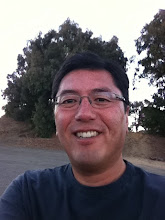Paul was commenting on how the Facebooks and mySpaces of this world have no real relevance when we come to work, he hit the nail on the head for me saying' ,'behind the firewall however, photos and music don’t go very far' - yep, its interesting to see a colleague's new baby photo but beyond that the share photos, music and 'about' pages do not help you to get your work done, after all thats why we are here.I couldn't agree more.To be more productive at work I need fast access to files - help, designs, how to's, code 'cook books'. OK, maybe a little too geeky on the latter but most importantly, in my mind, I need access to people.
Knowing who people are and what they do is the toughest thing in Oracle, with circa 60,000 folks with their heads down all beavering away - who is the person that knows ADI inside out, who might be able to point me in the right direction for an Oracle Forms problem. Sure, mailing lists are a help but people are swamped with mail - they may not like to be contacted by a relative stranger but I for one would rather spend 2 minutes on the phone talking to someone rather than exchanging umpteen emails until we had finally worked out what the question really was about and given an answer.
Wednesday, November 14, 2007
A "Social" Network at Oracle
As a result of all of the press being generated at Oracle Open World this week, I just came across an August blog entry about a social network being developed within Oracle for its employees. In my posts on "knowledge networking", I have been saying that businesses don't need social networks a la Facebook; they need something different that allows employees to leverage knowledge among each other. Tim Dexter, an Oracle employee, concurs in a post he wrote about the social network at Oracle...
Saturday, November 10, 2007
CEO 3.0
Today's NY Times has an interesting article on the evolution of what it takes to be a successful CEO...
The first iteration made its mark in the 1990s, as chief executives like Sanford I. Weill, Gerald M. Levin, John F. Welch Jr. and Michael Eisner built empires, not to mention their profiles, at the companies they ran: Citigroup, Time Warner, GE and Disney.This theme is very consistent with one raised by Carly Fiorina in a speech I saw last month. It's also interesting to note how often the points she made in her speech are being reiterated by others. Here's another example. While at HP, maybe she knew she what she was talking about after all.
When the shares deflated earlier this decade after the burst of the tech bubble and various corporate scandals, a new cadre moved in: the Fix-it Men. They were lower-key leaders like Charles O. Prince III of Citigroup and Richard D. Parsons of Time Warner, whose job it was to repair the excesses and mistakes of their predecessors.
Now, management experts and longtime watchers of corporate America say the current environment demands, and is attracting, yet another kind of chief executive: the team builder.
Wednesday, November 07, 2007
Do Schools Kill Creativity?
The video below was just brought to my attention. It is a talk given by Sir Ken Robinson at TED 2006. As described on the TED website...
Sir Ken Robinson makes an entertaining (and profoundly moving) case for creating an education system that nurtures creativity, rather than undermining it. With ample anecdotes and witty asides, Robinson points out the many ways our schools fail to recognize -- much less cultivate -- the talents of many brilliant people. "We are educating people out of their creativity," Robinson says. The universality of his message is evidenced by its rampant popularity online. A typical review: "If you have not yet seen Sir Ken Robinson's TED talk, please stop whatever you're doing and watch it now."It is 19 minutes and 29 seconds well spent.
Tuesday, November 06, 2007
The Enterprise 2.0 Bullseye
I've been at Defrag in Denver for the last couple days. Lots of good presentations and conversations but the highlight for me was Andrew McAfee's presentation this morning. In his presentation, he provided a great framework, for both vendors and organizations, that links the various Web 2.0 tools (wikis, social networks, blogs, prediction markets) with the types of relationships knowledge workers have with each other. You can read a synopsis of the presentation at McAfee's blog. If you are interested in "Web 2.0 for business", I think this is a "must read".
UPDATE: Here is Dan Farber's post on McAfee's presentation.
UPDATE: Here is Dan Farber's post on McAfee's presentation.
The Social Enterprise
Alex Iskold just posted another insightful article. This one's on The Social Enterprise. Similar to what Carly Fiorina said in a recent speech, Alex says that organizations need to be agile in order to succeed...
Lately however, with the increasing speed at which our society operates, we are seeing that companies have had to become more agile in order to compete. The old hierarchical structures are unable to process information quickly enough to make day-to-day business decisions.I generally agree with much of what Alex says in his post. There is one area where I have a slight disagreement...
Regardless of whether it is a technical or business team, knowledge acquisition and sharing is a challenge. Often, employees within the same team and even more often across teams, rediscover the same information. What better way is there to share the valuable information found on the web than a social bookmarking system?I agree that knowledge acquisition and sharing is a challenge. Where I disagree is that it can be solved with a social bookmarking system. I think much of a person's knowledge is locked up in emails and in documents, and I think there needs to be a solution that solves this problem in a broader manner.
Subscribe to:
Posts (Atom)
